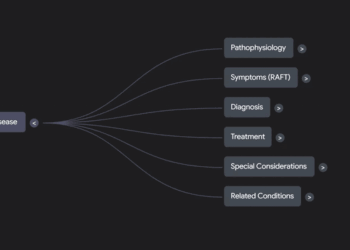In today’s academic environment, educators are grappling with the enormous challenge of incorporating AI into their teaching methods. Many students utilize AI tools, sometimes unethically, to replace their own efforts. However, rather than serving as a substitute for hard work, AI can act as a powerful tutor—one that makes complex ideas clearer, simplifies challenging subjects, and enhances study habits.
Utilize AI for Feedback and Clarifying Errors
After completing a quiz or exam, students often receive grades without any explanation of what went wrong. Similarly, high-stakes assignments may warrant a second opinion, depending on the institution’s stance regarding AI use for homework.
In these situations, AI can evaluate your completed work, pinpoint what you got right, and elucidate any mistakes. For written assignments, tools like ChatGPT can effectively analyze images of written problems. Regardless of how you present the material for review, it’s essential to provide some context in your prompts.
For instance, I snapped a photo of a math question and prompted:
I’m enrolled in a managerial accounting class. I answered B for the attached question. Can you explain why my answer is incorrect and why D is the right choice?
ChatGPT demonstrates a remarkable ability to solve mathematical problems and tackle qualitative challenges as well. Although it can occasionally produce errors, it generally offers sufficient insight to verify your answers, especially if you already know the correct one.
Customized Explanations for Complex Concepts
Beyond verifying accuracy, you can request tailored explanations for complex subjects. Consider prompts like the following, which can help convey your level of understanding and the type of explanation you need:
Imagine you’re a supportive university professor explaining [concept] to a student having difficulty grasping it. Please provide a detailed explanation.
You can also provide reference materials for the AI, such as pasting an article or uploading a PDF. Here are some additional examples of prompts you could use:
- “Explain [concept] as if I were five years old. Use the text below for reference.”
- “Imagine you are a peer mentor for a college student and explain [concept] using the attached document.”
- “What study plan would you recommend for me to master [concept] as quickly as possible?”
AI tools like ChatGPT have proven invaluable for sifting through research and notes, but their potential as tutoring resources is significant.
Analyzing Your Writing
While platforms like Grammarly offer real-time feedback, they often come with subscription fees. In contrast, ChatGPT allows for post-writing revisions at no cost. You can utilize a prompt like this for reviewing your writing:
Act as an English Writing PhD and provide constructive feedback on the writing below, with clear explanations.
You can customize the prompt further by seeking feedback from various viewpoints. Instead of just an English Writing PhD, you might want insights from a professional content writer or a technical report expert. You could even inquire, “How would the feedback of a content writer differ from that of an English PhD on this writing sample?” For instance, I utilized the initial draft of this article as a test—isn’t it fun to think about the adjustments I made based on feedback without revealing what they were?
This process can be iterative, allowing you to gather feedback from various perspectives across multiple drafts. For research-intensive writing, you might also find tools like Google’s NotebookLM beneficial. However, the ultimate aim should be to enhance your writing skills, as it’s crucial to be able to evaluate AI suggestions critically.
AI Has Its Limitations
In all these areas, AI remains flawed and can make errors. When solving math problems, for instance, it frequently falters on complex tasks. In terms of writing, ChatGPT tends to offer generic responses that may dull your unique voice. During my tests with math problems, it produced incorrect answers for multiple-choice questions about 5-10% of the time. Human tutors remain invaluable. Additionally, the allure of AI tools may tempt you to substitute your own efforts entirely.
Your personal growth and understanding in an academic setting are paramount. AI can be a supportive resource for studying and clarifying your confusion, but true success relies far more on the effort you apply rather than the extent of AI usage! The key to effectively using AI in your studies is to engage with it for genuine learning: seek explanations, and learn from its feedback on your mistakes.








